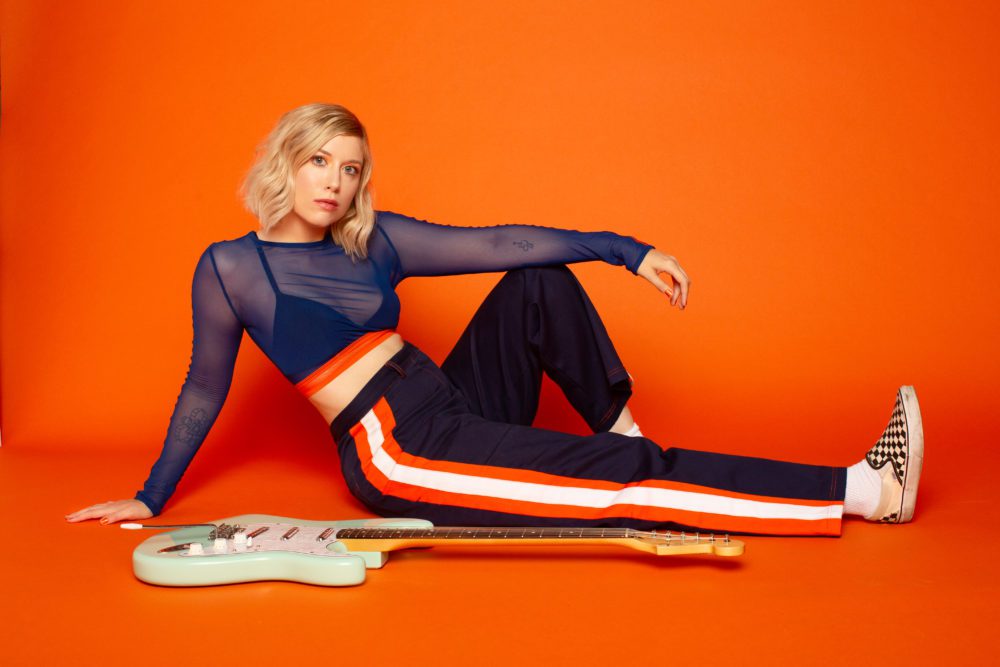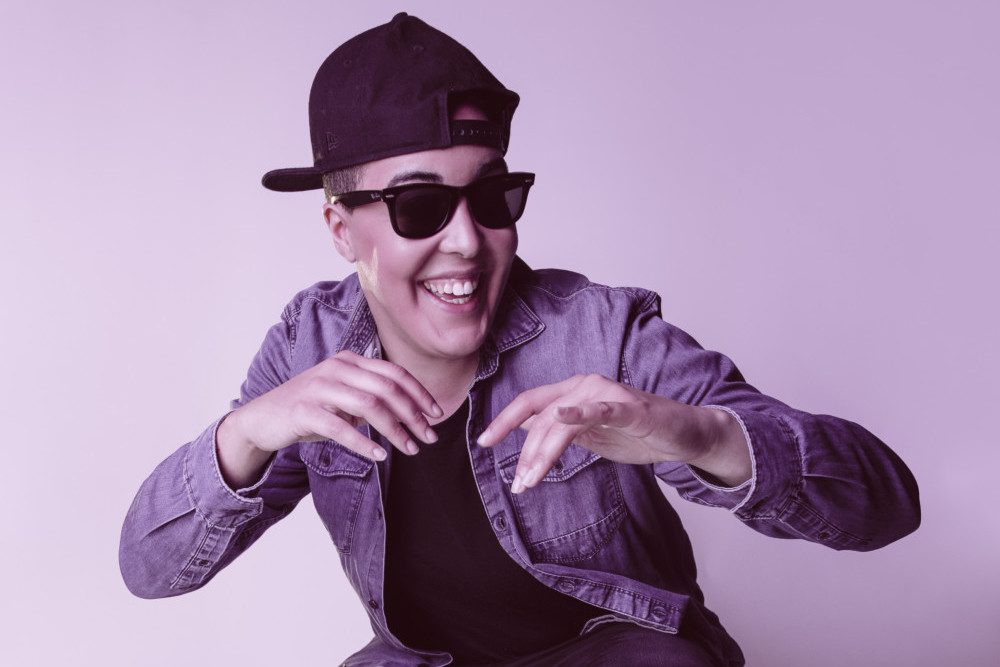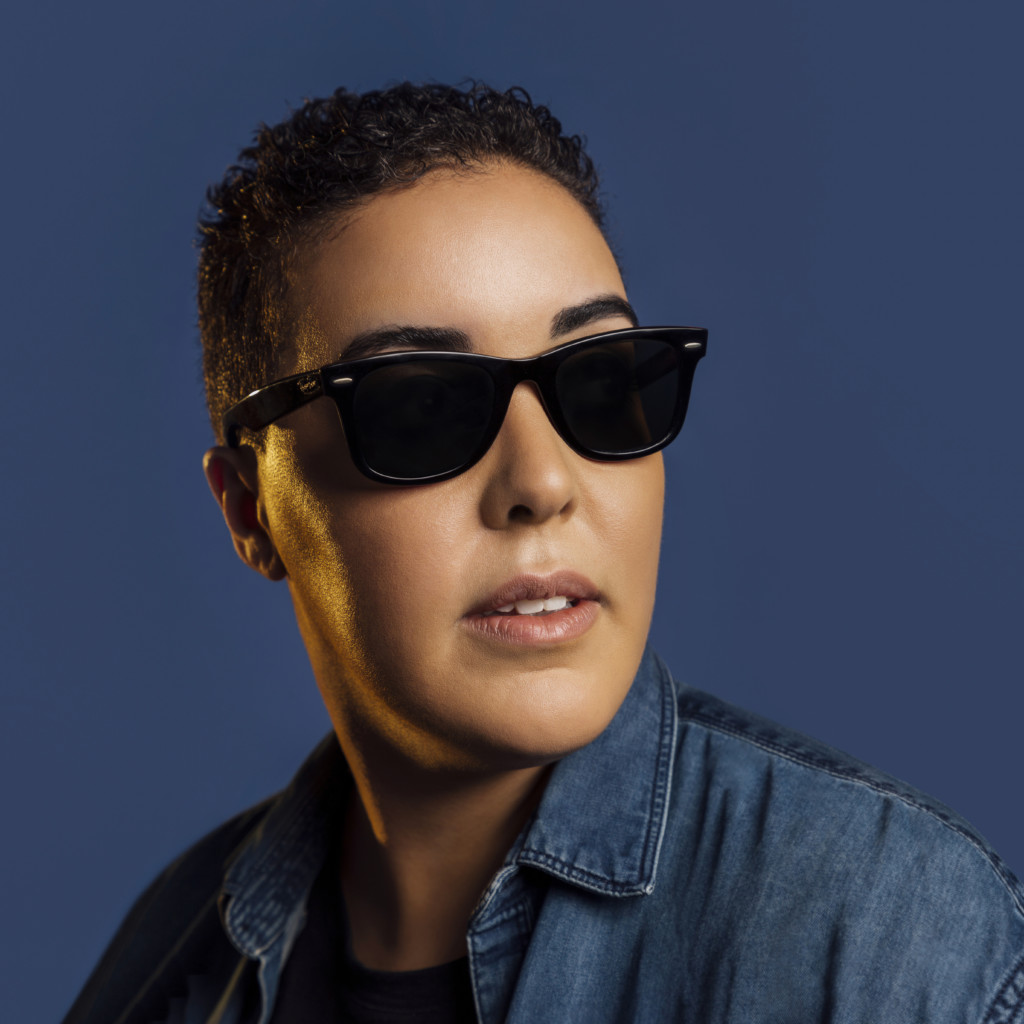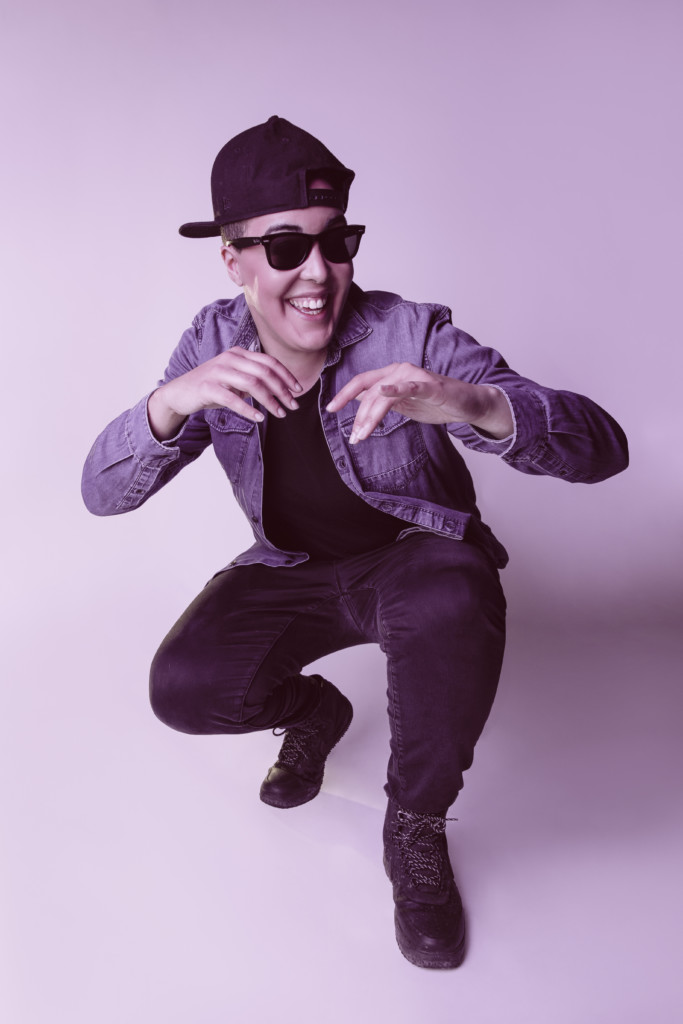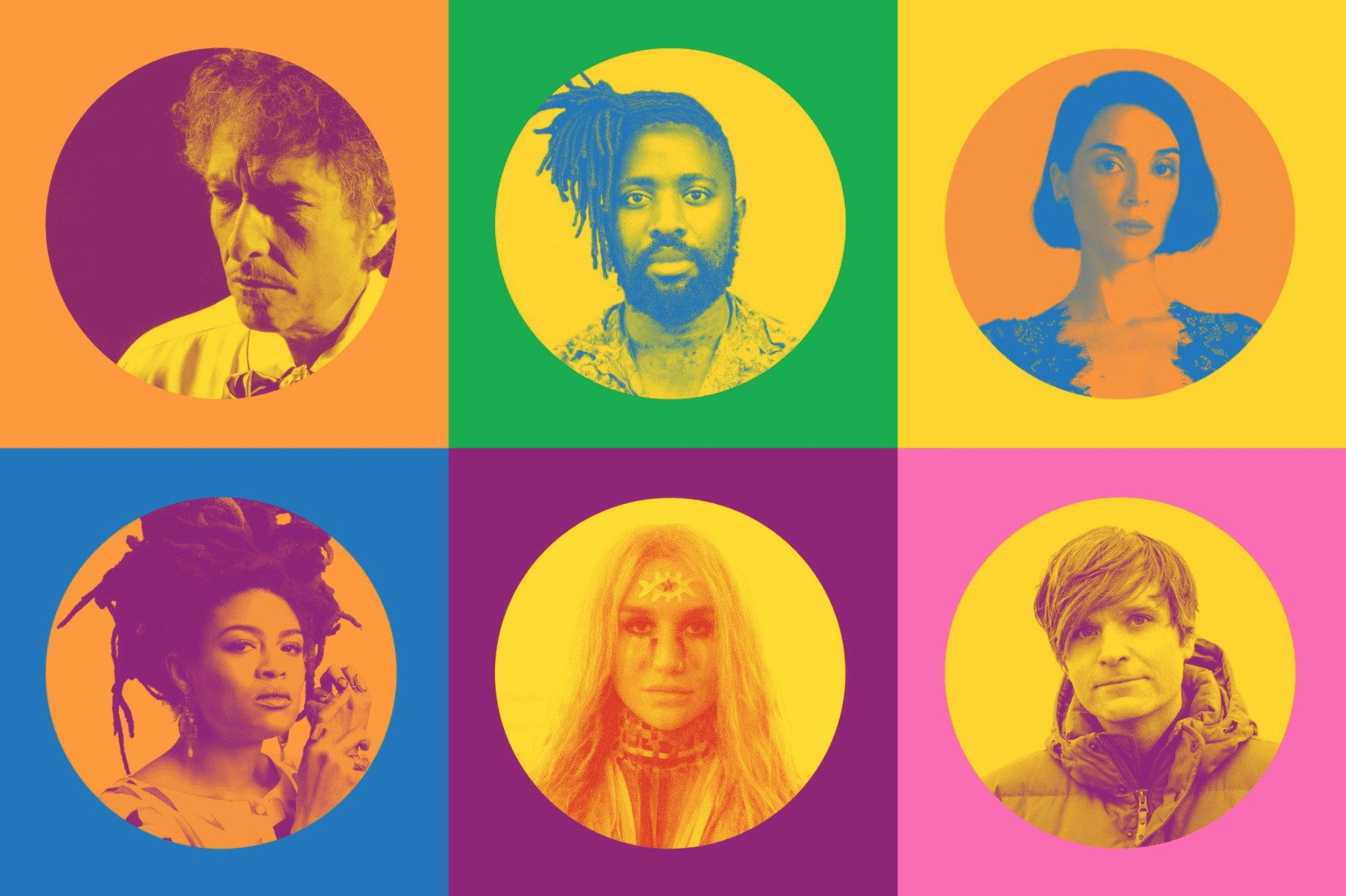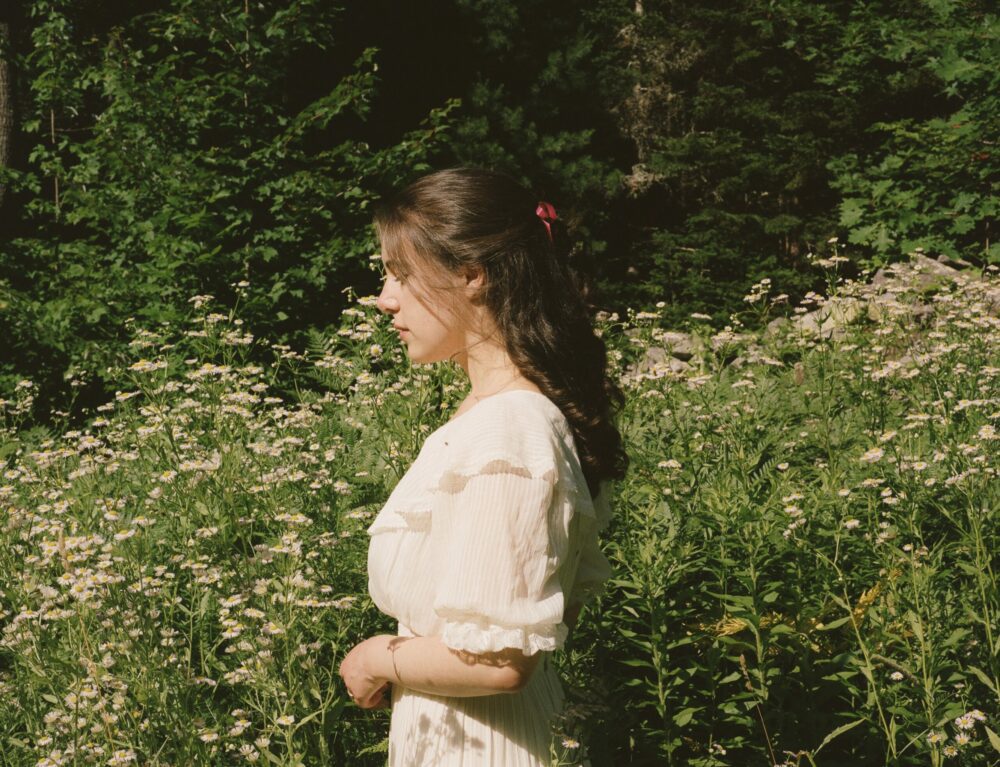
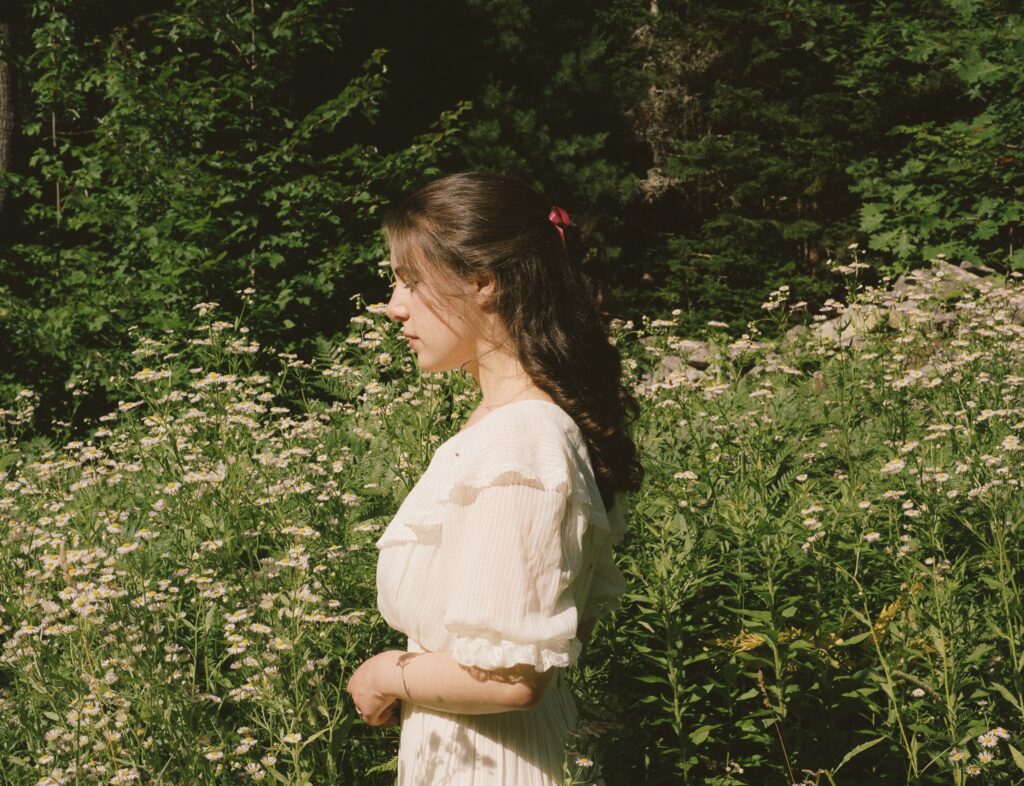
On a recent Zoom call, Gemma Laurence reads an excerpt from “Poem II,” part of the late poet Adrienne Rich’s series, “Twenty-One Love Poems.” She then comments on the line “and I laugh and fall dreaming again/of the desire to show you to everyone I love.”
“I just read that and was like, oh man, how lovely and magical is it to just realize that you like somebody and also like them so much that you want to show them to everybody you know,” she says. “I love that comparison.”
In the midst of the pandemic, when Laurence was back at her childhood home in Brunswick, Maine, passing the time by reading books, she stumbled across the poem inside Rich’s collection, The Dream of a Common Language. Years ago, a date had introduced her to the poet’s work and to this book. It was a significant event in Laurence’s life. “That was one of my first queer dates, where I realized that I was bi or queer,” she explains. “It changed my entire perspective, reading that book of poetry and also meeting that person.”
Rereading Rich reminded her of that moment and inspired her single, “Adrienne.” It’s Laurence’s first release since her 2019 debut album, Crooked Heart, and the first song where the folk singer, now based in Brooklyn, has opened up about her sexuality. “It’s funny because it’s not an explicitly celebratory ‘I’m out’ song,” says Laurence. “It’s just a song that happens to be about a girl and that, in itself, feels important for me.”
“Adrienne” marks a turning point in Laurence’s growing body of work for more than the subject matter. Her 2019 LP Crooked Heart, which takes its title from WH Auden’s poem “As I Walked Out One Evening,” was comprised of songs that Laurence wrote roughly between the ages of 15 and 20. “They felt a little bit more reactive. Something would happen and I would write a song about it,” she says. Conversely, she describes “Adrienne” as “more nostalgic and retrospective and reflective.”
Laurence attended Middlebury College in Vermont, where she wrote her thesis on representations of Sappho in poetry of the 19th century. While she considered going onto graduate studies in Victorian literature (and still may do that someday), her immediate goal after graduating in February 2020 was to move to New York. The COVID-19 pandemic, though, temporarily changed her course. Laurence headed back to Maine, where she would live for the next seventeen months, assuming that her musical pursuits would be on hold until the situation improved. However, her time back in Brunswick proved to be creatively inspiring. “Just letting myself sit and take care of myself and my family, given everything that was going on, actually gave me more space to be creative,” she says. Laurence wrote more and kept up with her journal, all of which led to songs.
She also developed a practice of going for morning walks and making field recordings. “I live in this really lush tree-lined area on the coast and so I’d walk down to the water, past all these farms and through all these forests,” she says. Laurence would use her phone to record the sounds of rainfall and what she describes as the “morning choir” of birds, which she then used on demo recordings. Bits of the field recordings used in the demo of “Adrienne” remain in the song.
Meanwhile, Laurence had connected with a few musicians online who would become pivotal in helping her hone her sound. She took banjo lessons during the pandemic with Steve Varney, who plays in Gregory Alan Isakov’s band, and workshopped “Adrienne” with him. She met Charlie Dahlke, of the band The Brazen Youth, who recorded, produced and mixed the song.
“I wrote it alone and I thought that I was going to record it on my laptop,” says Laurence of “Adrienne.” But she had the opportunity to work with Dahlke, as well as Jess Kerber, who sings backup on the track, and Matt Phillips (pedal steel) and Will Orchard. “I had never worked with that many musicians before. On my previous album, I recorded with just one other person in a live take and put it out on the internet,” she says. “This felt like a really big step for me to break it down, make it more of a process, bring people on board, be very intentional about the arrangement.”
Still, when Laurence was working on her latest batch of songs, more of which she hopes to release in 2022, she took some alone time to perform “Adrienne.”
“I wrote the song initially alone, and it’s a very introspective, nostalgic, tender, intimate, quiet, personal song, so everyone kind of left the studio when I recorded it,” she says. “It felt really quiet and lovely to put all these blankets around me when I recorded it, to make it super cozy and have more of a soft, muted effect from the nylon string guitar that I was recording on.”
In June, after she was vaccinated, Laurence moved to Brooklyn and, so far, things have been going well for her. She’s debuting “Adrienne” live at Piano’s this Saturday, October 16 with a brand-new band, and has a show lined up at at The Broadway on November 19th as well. She says, “Everything feels like it’s finally starting to happen.”
Follow Gemma Laurence on Instagram and Facebook for ongoing updates.

